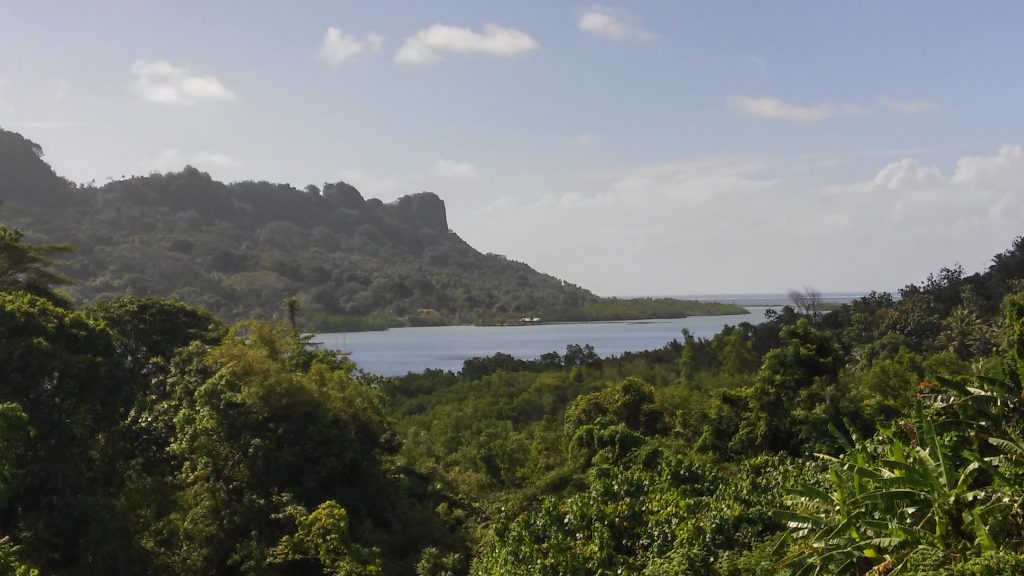Managing the Impact of COVID-19 in Western and Central Pacific Fisheries: Balancing Protection of Peoples with Resource Conservation through International Law
By Dr Penelope Ridings
ANZSIL Perspective May 2020 Edition 13
COVID-19 and its impact on global supply chains has been a focus of recent discussions on the pandemic. International organisations such as the Food and Agriculture Organisation have sought to provide guidance on measures which can be taken to protect supply chains and the incomes of fishing communities, while maintaining appropriate fisheries control measures. The practical impact of COVID-19 on the Pacific tuna fishery has been highlighted, particularly in light of the economic reliance of small island developing States on tuna fisheries. There are significant concerns over the impact of the virus on Pacific island countries which to date have largely been COVID-19 free.
These issues have played out in the Western and Central Pacific Fisheries Commission (WCPFC), which is the regional fisheries management organisation responsible for conserving and managing the tuna stocks of the western and central Pacific region. WCPFC has adopted a number of conservation and management measures which have been affected by COVID-19. These include the requirement for 100% observer coverage on purse seine vessels operating in the Convention Area, the prohibition on purse seine vessels transhipping at sea, and the requirement for monitoring of all longline high seas transhipments by an on-board observer on either the fishing or carrier vessel. Various Pacific island countries have taken action in response to COVID-19 including the closure of borders, suspension of observer placements, suspension of port entry, and the designation of areas outside ports where transhipments can take place. Restrictions imposed as a result of COVID-19 have made it increasingly difficult for countries to comply with WCPFC requirements.
Concern over the effects of the pandemic on the health and safety of observers, most of whom are from Pacific islands, led the Forum Fisheries Agency (FFA) together with the Parties to the Nauru Agreement (PNA), to temporarily suspend in their waters the requirement for 100% observer coverage on purse seine vessels until 31 May 2020. This took immediate effect from the date of the FFA letter on 27 March 2020, which also requested that the WCPFC take compatible measures to suspend the operation of relevant WCPFC requirements.
Responding to this request posed challenges from a procedural perspective. The WCPF Convention provides for consensus decision-making, and if consensus cannot be reached, for a process of voting. To date WCPFC has taken all decisions by consensus. The WCPFC Rules of Procedure also provide for intersessional decision-making, including where the Chair, in consultation with the Vice-Chair considers that intersessional decisions are necessary. The intersessional decision-making procedures provide for circulation of proposals, a 40-day period to respond to the proposal, followed by entry into force 60 days after adoption. There was one occasion in 2011 when WCPFC took substantive intersessional decisions to extend conservation and management measures following the postponement of the 8th Commission meeting. There has not, however, been a situation where WCPFC has had to respond quickly to an emergency situation, such as that resulting from COVID-19.
Clearly in an emergency situation the WCPFC decision-making procedures were not going to be efficient or effective. The Chair of the Commission, Ms Jung-re Riley Kim, therefore proposed an expedited procedure according to which proposals were circulated for decision with responses requested from Members within 7 days. No Member objected to this expedited procedure which has to date been used three times in response to COVID-19. It was first used for a decision to suspend temporarily the requirement for observer coverage on purse seine vessels throughout the Convention Area until 31 May 2020. This was developed on the Chair’s initiative in response to the FFA request for compatible measures. The proposal was adopted on 8 April 2020 with immediate effect and conveyed together with certain points of clarification which had been brought to the Chair’s attention by Members.
Contemporaneously a Member of the Commission submitted a proposal under the same expedited procedure to address other issues arising from the impact of COVID-19 restrictions on transhipments in port and at sea. This raised issues for a number of Members over the adequacy of alternative monitoring mechanisms where observers were not present to observe transhipment events, a concern that has also been voiced by non-government organisations concerned with the sustainability of fisheries. The different views among WCPFC Members needed to be reconciled and the process highlighted the difficulty of developing and agreeing proposals intersessionally.
Following discussions among Members, the Chair advised on 20 April 2020 that the Commission had endorsed the part of the proposal which provided that where it was not feasible for a purse seine vessel to tranship in port, due to port closures and relevant access restrictions related to COVID-19, the vessel could be permitted to tranship at sea in waters under the jurisdiction of a port State in accordance with that State’s requirements. The final part of the proposal concerning the suspension of the requirement for vessels transhipping at sea to have an observer on the carrier or the offloading vessel was adopted on 13 May 2020. All three WCPFC decisions are effective until 31 May 2020. Given the ongoing nature of the COVID-19 pandemic and resulting border and port restrictions, it is expected that the decisions will be extended for a further limited period.
Members of WPCFC have demonstrated willingness to be pragmatic and flexible in addressing an unprecedented situation. WCPFC took decisions using a novel procedure which responded to the need for urgent decision-making so that States were not put in the position of breaching their international obligations. It addressed the requirement for decisions to become binding 60 days after adoption by endorsing decisions which suspended the operation of obligations, clarifying the basis on which such suspensions would operate, and by not introducing new conservation and management measures. In this manner WCPFC sought to maintain the integrity of its rules, while taking into account the exigencies of the COVID-19 pandemic. It is an example of how international organisations can adapt to pandemic situations through recourse to international law.

